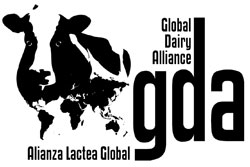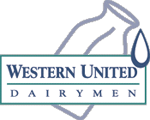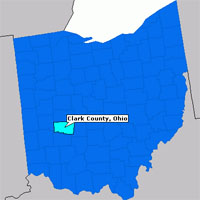 The National Milk Producers Federation has joined the chorus of voices from the U.S. agriculture industry in expressing disappointment over the collapse of World Trade Organization talks.
The National Milk Producers Federation has joined the chorus of voices from the U.S. agriculture industry in expressing disappointment over the collapse of World Trade Organization talks.
According to an NMPF release,
The decision by the World Trade Organization to suspend efforts aimed at achieving a breakthrough in world trade talks “is a disappointment for America’s dairy farmers, who were hoping to use the WTO as a way of leveling the playing field while increasing their opportunities for future exports,” said Tom Suber, President and U.S. Dairy Export Council. “We applaud our negotiators for seeking an ambitious conclusion of the Doha Round, which seeks to reduce the current inequities,” Suber added.
Jerry Kozak, President and CEO of the National Milk Producers Federation, praised the dedication and skill of the U.S. negotiating team. “To their credit, our government’s negotiators understood that no deal is worse than a bad deal for our dairy industry and the United States, and rather than tinker at the margins, they agreed to walk away for now.”
U.S. Trade Ambassador Susan Schwab and Agriculture Secretary Mike Johanns held a joint press conference from Geneva this morning expressing their feelings about the collapse of the talks.
“A lot of disappointment that we weren’t able to wrap this up, a recognition that this is a serious failure,” said Schwab.
Johanns said Congress will now move forward with the writing of a 2007 Farm Bill, since there is no hope at this point that an agreement could be reached by the end of the year to be considered under the current Trade Promotion Authority before it expires.
“There are no negotiations planned for the future. This round has been suspended. The negotiating teams have stopped.”
Johanns and Schwab say the focus now will be to continue to aggressively pursue bi-lateral and regional trade agreements.
 Grafton Village Cheese Company of Vermont is planning an expansion project with the goal of doubling its current annual production to three million pounds of award-winning aged cheddar cheese.
Grafton Village Cheese Company of Vermont is planning an expansion project with the goal of doubling its current annual production to three million pounds of award-winning aged cheddar cheese.
 The
The 
 For dairy producers facing tough times in Vermont (
For dairy producers facing tough times in Vermont (
 Each summer, the
Each summer, the  (6:24, mp3)
(6:24, mp3) One of our regular features on World Dairy Diary is the
One of our regular features on World Dairy Diary is the  The National Milk Producers Federation has joined the chorus of voices from the U.S. agriculture industry in expressing disappointment over the collapse of World Trade Organization talks.
The National Milk Producers Federation has joined the chorus of voices from the U.S. agriculture industry in expressing disappointment over the collapse of World Trade Organization talks.